Interest Free Financing Up To 36 Months
WE DO NOT ONLY PUMP YOUR TANK - WE CLEAN IT!
Multiple Financing Options Are Available Up To 36 Months
Interest Free Financing Up To 36 Months
WE DO NOT ONLY PUMP YOUR TANK - WE CLEAN IT!
Multiple Financing Options Are Available Up To 36 Months
If you have a septic system installed in your property, then you should be even more careful than homeowners whose building is connected to a centralized sewer system. Considering water makes up a majority of your waste that passes through the septic system, the quality of the water is crucial. Hard water, or water with a high mineral content, can be problematic as calcium and magnesium deposits can form chalky buildup in your pipes. The solution to hard water is a water softener, but this, too, has an impact on your septic system. This article brought to you by Septic Blue will go over some of its effects. Feel free to call Septic Blue whenever you need service for your septic system.
What Is A Water Softener?
A water softener is a fairly simple filtration system that treats hard water. This system has two primary parts: the softener tank and the brine tank.
As water flows through the softener tank, the positively charged minerals such as calcium, magnesium, iron, and sodium attach to the negatively charged tank. The filtered water then continues through the plumbing system and is distributed throughout your building while the minerals remain.
Every three to four days, the water softener draws salt water from the brine tank to negatively charge itself again and release the positively charged minerals. These positively charged minerals are flushed out of the system through the plumbing system. In your case, they would flush through the septic system.
The Effects on Your Septic System
Water softeners have two potential consequences for septic systems: a system overload or clogging.
The flushing process we mentioned earlier happens almost twice a week. Each flush uses 50 and 150 gallons of salt water. This sudden influx of water can overload the septic system, especially if it happens at a time when your washing machine or dishwasher is running. The result can be water or sewage backups as well as an overwhelmed and flooding drain field.
Secondly, the brine water is especially harmful for the septic system because salt water is significantly heavier than fresh water. When the salt water enters the septic tank, it sinks to the bottom, sometimes even lifting the sludge and suspending it in the effluent along with the scum layer. This can allow sludge to flow out into the drain field, causing clogs in the pipes and foul odors in the field.
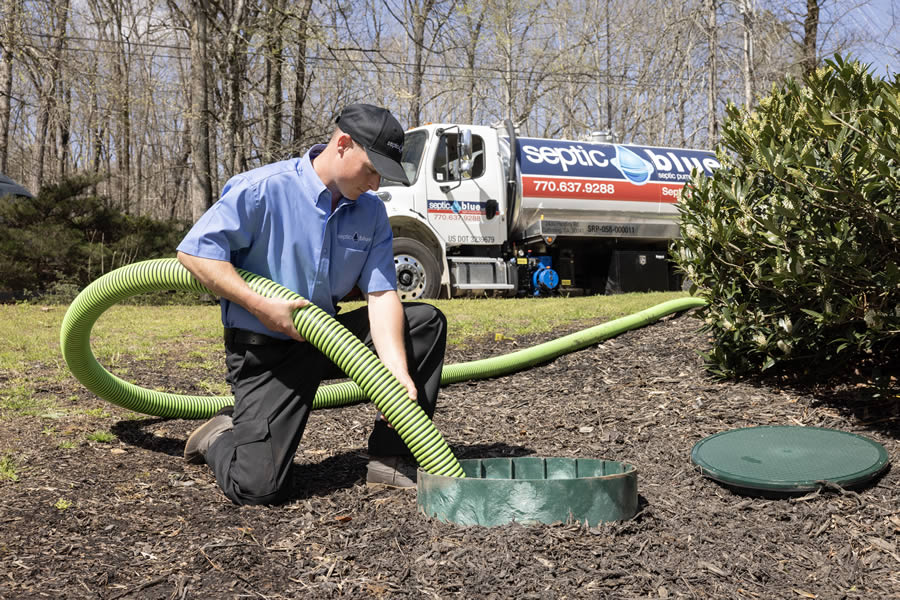
Septic tank pumping in Raleigh has never been so affordable and accessible thanks to the professionals at Septic Blue. We are…
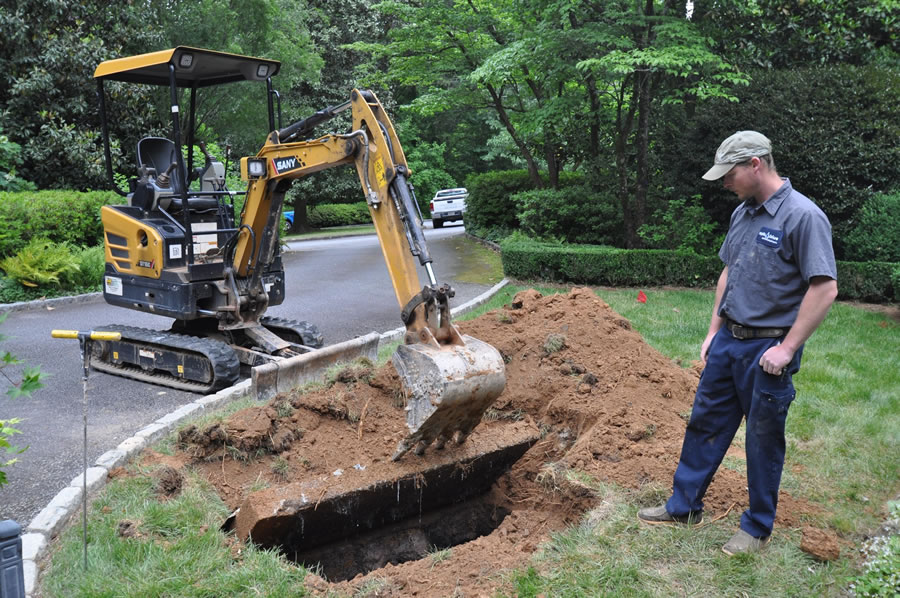
One quarter of Americans rely on septic tanks to process household waste. Most Septic Blue locations have septic tank experts who…
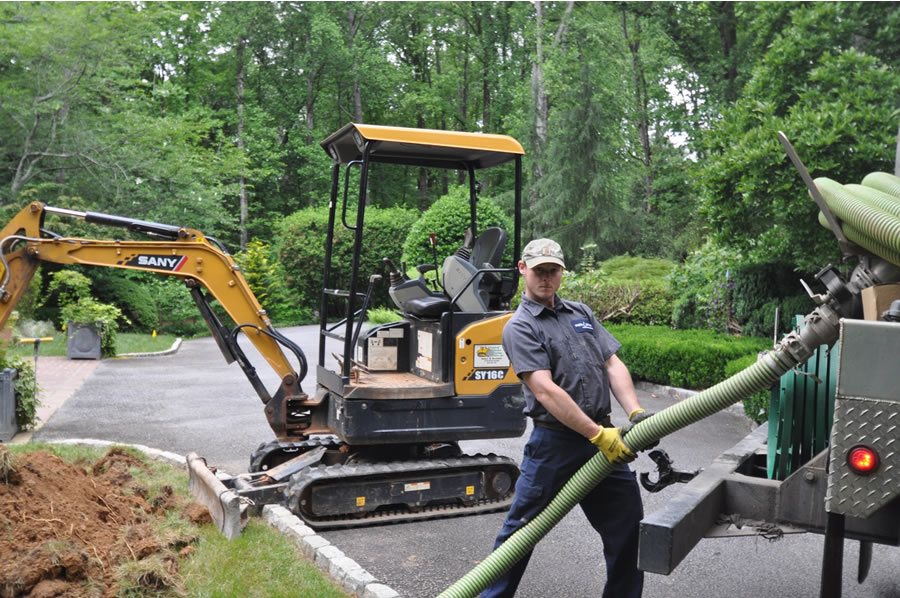
Call Septic Blue today for a second opinion. If you choose to go with Septic Blue, you'll receive $250 off your…
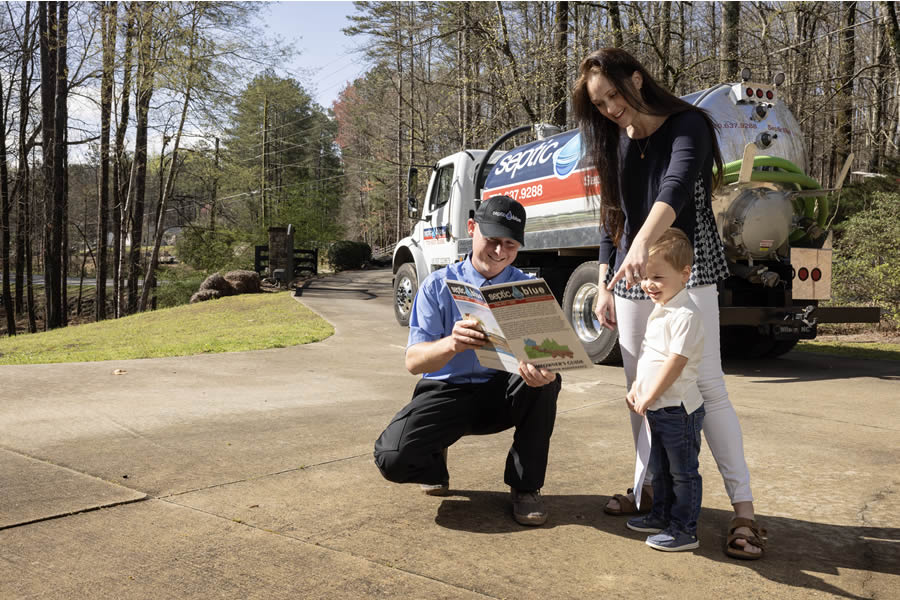
If you are a homeowner or resident in Raleigh that is among the 20 percent of households in the U.S. with…
Professional Saptic Plumbing solutions for every need. Contact Us Today!
What to Do
If you have a septic system, then chances are you also rely on private well water, which tends to contain high mineral content that calls for a water softener. We are not saying you should not install a water softener. However, we recommend that the water softener is adjusted to discharge the brine solution outside of the plumbing system. This can be into the storm drain or downspout.
Call Septic Blue
There is never a bad time to call Septic Blue if you have a septic emergency. We have experience with water softeners and septic systems, so get in touch with a friendly representative to consult.

Selling a home comes with a long checklist of responsibilities, from preparing disclosures to scheduling appraisals and negotiating with buyers. If…
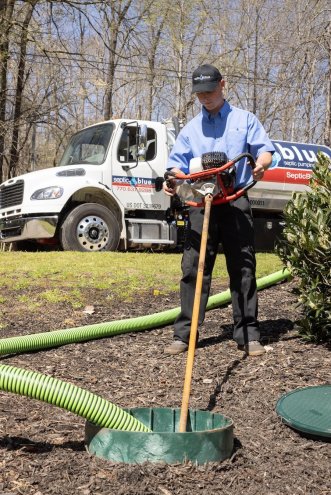
Your septic system plays a critical role in managing wastewater safely and efficiently, protecting both your home and the surrounding environment.…
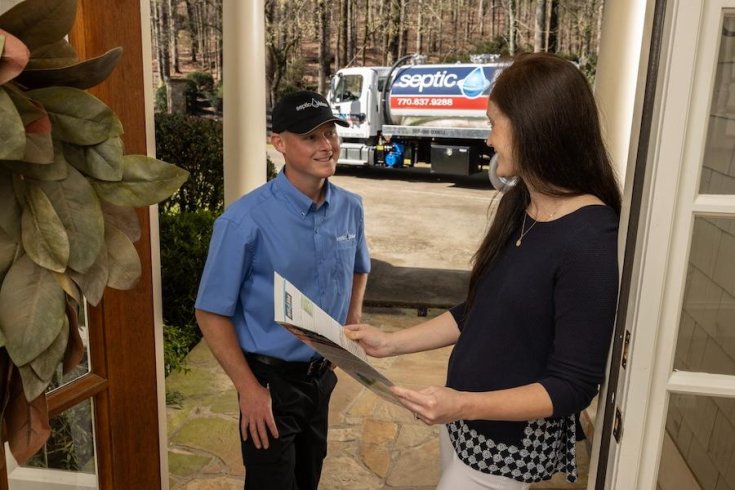
Hiring a septic company in Raleigh, NC involves more than comparing prices or scheduling the earliest appointment. Septic pumping, cleaning,…

A septic system is designed to move wastewater efficiently from your home into a tank and then into the drain field.…